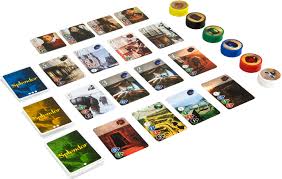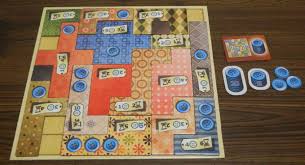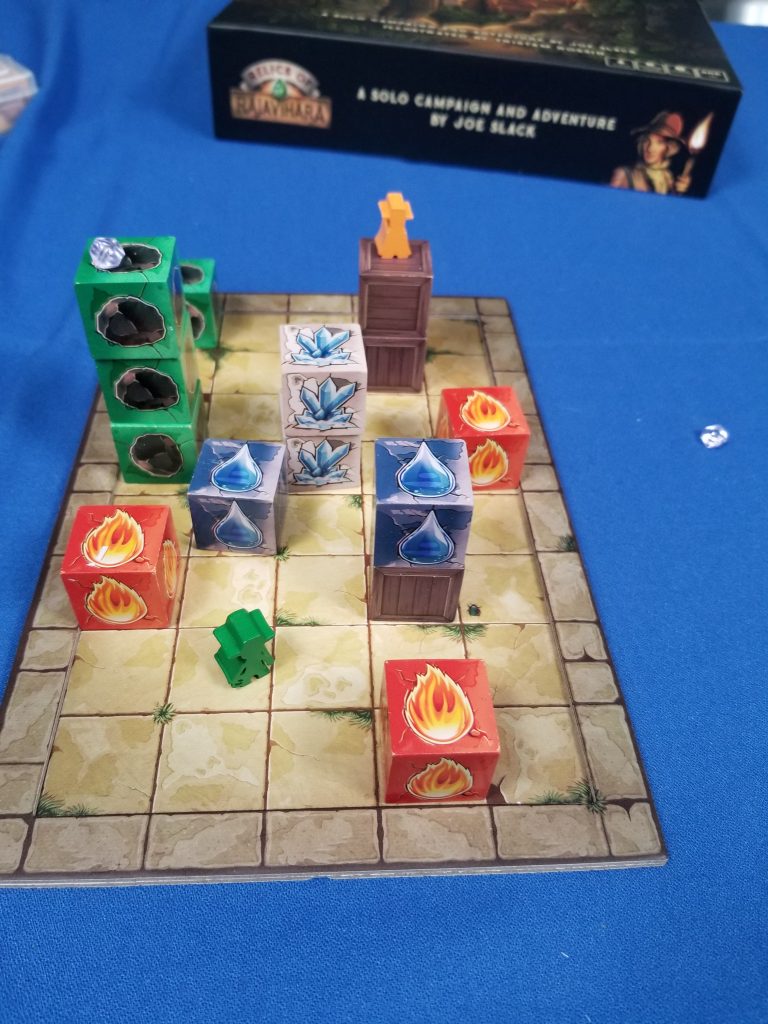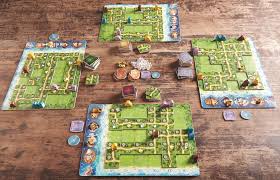Game Mechanics: How to make your players feel smart
Last week we discussed some game mechanics meant to get people laughing and having a great time while playing a party game. This week we’ll look at many examples of how to use the right game mechanics to make your players feel smart.
We all like to feel clever. Whether solving a problem, doing well on a test, or pulling off a killer strategy while playing a board game, this makes us feel good inside.
This is a feeling that has been incorporated into so many great games.
Let’s look at some examples of games that allow you the opportunity to feel smart and how you can apply similar ideas into your own games using the right game mechanics.
Intended and Emergent Strategies
A good strategy game will often provide you with multiple paths to victory that you can take. All, or at least most, should allow you to win, or at a minimum, remain competitive.
This could take the form of an intended strategy or an emergent strategy.
An intended strategy is one that this planned from the beginning. However, often in a game, other player’s actions conflict with your intended strategy and you must switch gears and take another direction that is more feasible. This is where the term “emergent strategy” comes in.
To quote Henry Mintzberg, “emergent strategy is a set of actions, or behaviour, consistent over time, ‘a realized pattern [that] was not expressly intended’ in the original planning of strategy.”
In gaming terms, you see that the actions you’re taking are leading you in a direction, and you follow this pattern to pull off a strategy you perhaps didn’t recognize or plan to follow when you first started playing.
Sometimes you can’t see a clear path right from move one, but over time, you realize that a particular strategy might work, so you take this route.
How the Right Game Mechanics Can Make Players Feel Smart
One way to open up these emergent strategies is to create multiple paths to victory. Rather than developing a game with one linear path that players must follow, you can provide many choices throughout the game that will lead players in different directions.
One game that lends itself to players feeling smart is Splendor.

The main game mechanics in Splendor revolve around engine-building through set collection. The turns and choices are simple. You do one action on your turn:
- Take 3 different jewels
- Take 2 jewels of the same type (provided a minimum number of jewels are present)
- Purchase a card
- Reserve a card, along with a wild jewel
Each time you purchase a card, you’ll be able to use the jewel represented at the top of the card for future purchases. The more of these you have, the easier it is to buy other cards, as they act as a permanent resource. Less turns spent taking jewels leads to more turns purchasing cards and earning points (which you need to win the game).
While the gameplay is simple to grasp, there are different strategies you can take. You can buy up a ton of low-cost or free cards, you can save up for more expensive cards that provide points, or you can aim for the noble tiles, which you earn when you have collected a certain number of specific cards (and taking one is a free action once earned).
All of these strategies can also intersect and you can go back and forth or change course mid-stream as you watch what other players are doing (especially when they buy that card you had an eye on!).
It makes you feel really smart when you get that high-point card or snatch up a noble tile without the other players realizing how close you were to obtaining them!
Engine building through set collection and similar manners are definitely great game mechanics for making players feel smart.
But you can also accomplish other ways…
How Solving Puzzles Makes You Feel Smart
When players can figure something out, like solving a puzzle, they naturally feel smart and really good about themselves.
This can come in the form of escape rooms, escape rooms in a box (like the Exit and Unlock series of games), or tabletop games.
Some great examples come from polyomino games. These are games that incorporate pieces like those you would see in Tetris that players must figure out how to place on their own board.
Patchwork and Barenpark are 2 games that come to mind when I think of puzzle-y polyomino games.

Both of these games rely on players both choosing and placing pieces wisely. It feels amazing when you can get the right pieces and they interlock just the way you had hoped!
Puzzles can also be incorporated into story-telling and RPG games. Players have to figure out the riddle or solve the problem before they can advance.
My solo adventure game, Relics of Rajavihara, is all about solving puzzles.

It is a level-based campaign game that has players moving around crates and other blocks in order to figure out a path to capturing the gem and moving on to the next level (as well as dropping a block on your nemesis at the conclusion of each floor!).
There is a real feeling of accomplishment when you’ve been puzzling over a level for 20 minutes and finally, the solution comes to you. That’s when you really feel smart!
Using Simultaneous Play to Make Players Feel Smart
I love games that incorporate simultaneous play. Some really good ones are Karuba, Scarabia, Cartographers, Number 9, and Planet Unknown.

In each of these games, every player has the exact same piece to place at the exact some time on the exact same board. But since everyone thinks differently, all players come up with different paths or layouts.
I always find it fascinating to look at other player’s boards at the end of one of these games to see how their brains work. It’s amazing to see everyone do something completely different with the same inputs and then end up with resulting outputs that often look (and score) quite different!
In games like these, if you can pull off the winning moves, you definitely feel smart!
There are so many other game genres and game mechanics that can make players feel smart from CCG (collectable card games) to war games and everything in between, that you could write a whole book on the topic!
For now, I hope these examples give you some good ideas for how to allow players to feel smart in your own games.
What game makes you feel really smart when you pull off an interesting strategy?
Please share this with me and other readers by leaving a comment.
Next week we’ll be looking at how to create an awesome word game (which often also involves making people feel smart).

6 comments
Jan Stronkman
Nice examples Joe, thx. Last weekend we played Broom Service again. The dilemma you face each time is to play a card ‘Brave’ (risky if another player has same card in their hand, but higher rewards) or ‘Cowardly’ (safe, but less rewards) You feel real smart if you are able to interpret what other players might choose to play (that round) Then you have great power over the right decision and gain the maximum rewords and point in your turns.
Joe Slack
Great example, Jan! I haven’t had the chance to play Broom Service yet, but I’ve heard good things about it and would love to try it out sometime.
Arthur Wohlwill
Splendor is simple enough that I can articulate a strategy. Someone who is very good at board games said that you should avoid cards that have no points. That strategy has not worked well for me, but it seemed worth a try. In the latest version of Azul, Summer Pavilion, I picked what I thought was an obvious strategy and was little disturbed when i worked (OK 2 out of 3 times, but still). I did not make me feel smart, it made me feel that there was something wrong with the game. A solo game can make me feel smart if I improve my score and or if the challenges get increasing difficult. Calico is a good example of this. It does have multiple paths to victory at the lower challenges, but becomes more restrictive as you go on. If I do not improve in solo games, then either there is too much luck or I am missing something.
Joe Slack
Great points, Arthur!
I haven’t seen that with Azul Summer Pavilion yet, but I will keep this in mind.
A completely agree with you about solo games. The first time I play one I pretty much expect to lose. I want to get better as I play and have it still be a challenge for me every time.
Christopher Burdiss
Splendor is a great example of emergent strategy because whenever a new card comes onto the table, you may have to reserve it before the other players can buy it, so your strategy shifts and changes gears very often in such a simple game.
Joe Slack
Absolutely! Splendor is a great example of this. Thanks for sharing this, Christopher!